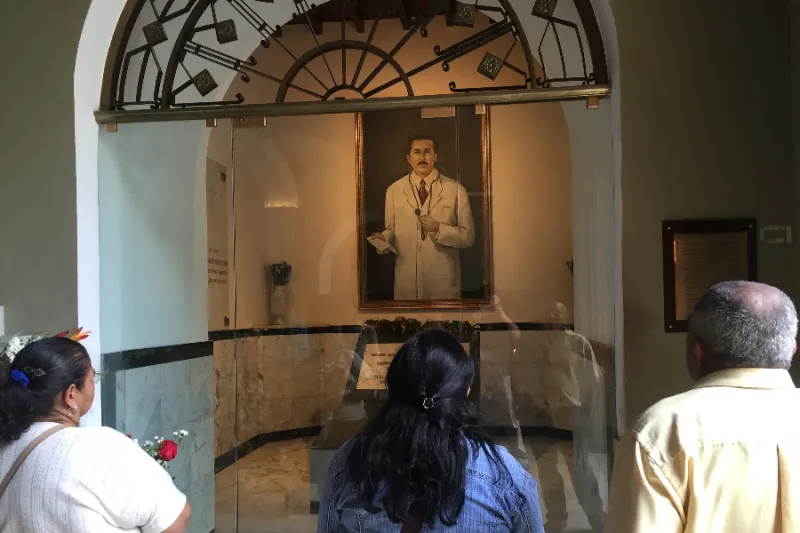
Ciudad Bolivar, Venezuela, May 10, 2021 / 19:19 pm (CNA).
A relic of Blessed José Gregorio Hernández Cisneros, known as the doctor of the poor, is being brought to hospitals and clinics in Ciudad Bolívar to bring hope to the sick and healthcare personnel amid the COVID-19 pandemic.
The Archdiocese of Ciudad Bolívar announced that the blessed’s relic will be brought to healthcare facilities and other institutions in the archdiocese May 6-14.
The archdiocese said the purpose of the tour is “to bring to the faithful and devotees the fragment of the bodily remains of the Venezuelan doctor who was an example of charity, service, and professionalism”, as well as “to encourage patients, healthcare personnel, and family members in the midst of the tribulations of being sick, especially during these times of pandemic.”
On May 6, the relic of Blessed José Gregorio made the rounds of the Ruíz y Páez University Hospital Complex, the Tórax Hospital, and the School of Medicine of the University of the East.
The archdiocese said that the relic will be brought to the local government hospital, the Virgen del Valle Oncology Unit, the Vista Hermosa detention center, and other places.
After May 14, there will be a second stage tour of the relic, which will be brought to every parish in the archdiocese through Nov. 20.
The relic will then return to Ciudad Bolivar Nov. 21 to be installed in a soon-to-be-announced church where it will be reserved for veneration and pilgrimages.
Blessed José Gregorio Hernández was born Oct. 26, 1864, in Isnotú in the Venezuelan state of Trujillo. He lost his mother when he was eight years old.
Hernández studied medicine in Caracas and received government funding to continue his studies in Paris in 1889 for two years.
After returning to Venezuela, he became a professor at the Central University of Caracas, where he began each lesson with the sign of the cross.
Hernández attended daily Mass, brought medicine and care to the poor, and made a profession as a Third Order Franciscan.
He eventually discerned a monastic religious vocation and gave up his professorship to enter a Carthusian monastery in Farneta, Italy, in 1908, with the name of Brother Marcelo.
After nine months, he fell ill, and his superior ordered him to return to Venezuela to recover. In Caracas, he received permission to enter the Saint Rose of Lima Seminary.
He returned to Rome three years later to study theology at the Pontifical Latin American College, but again became ill and was forced to return to Venezuela in 1914.
Hernández concluded that it was God’s will for him to remain a layman. He decided to strive to become an exemplary Catholic as a doctor and give glory to God by serving the sick.
He devoted himself to academic research and serving the poor, particularly during the Spanish flu.
One day, as the doctor went to pick up medicine for an elderly poor woman, he was hit by a car. He died in hospital June 29, 1919, after receiving the last rites.
If you value the news and views Catholic World Report provides, please consider donating to support our efforts. Your contribution will help us continue to make CWR available to all readers worldwide for free, without a subscription. Thank you for your generosity!
Click here for more information on donating to CWR. Click here to sign up for our newsletter.




Leave a Reply